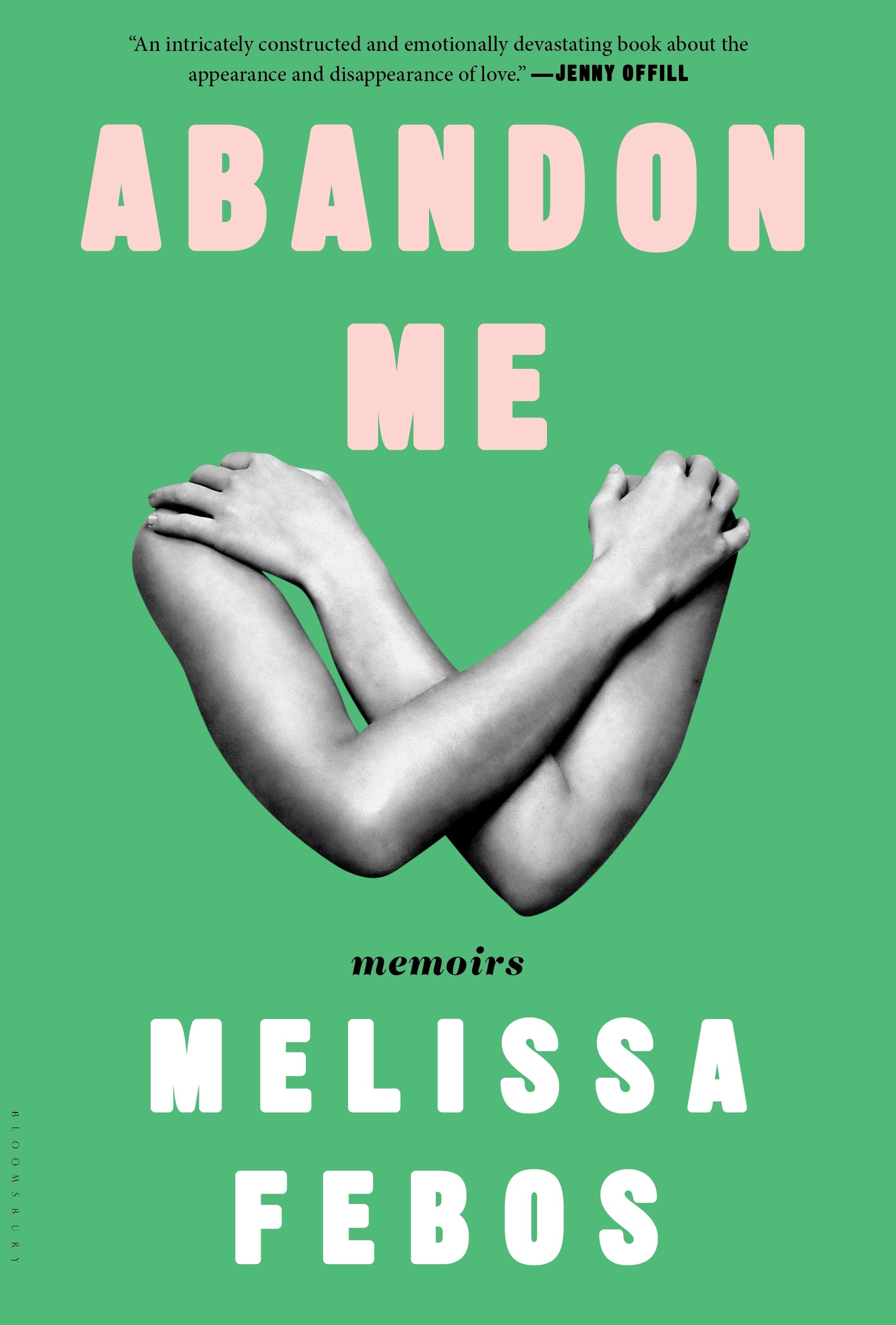 Living as a blend of Native American, Puerto Rican, gay, and European, Melissa Febos knows that the chance to tell her story is a hard-won privilege. The identity she deconstructs in her latest memoir is built on proximity, history, and the behaviors residing in her blood. By holding her patchwork nature in focus, Febos honors the silent ancestors that make her life a “very American story.” Abandon Me is an inventory of what she was given, what she has made of it, and, somewhat necessarily, what her inventions have made of the others in her story.
Living as a blend of Native American, Puerto Rican, gay, and European, Melissa Febos knows that the chance to tell her story is a hard-won privilege. The identity she deconstructs in her latest memoir is built on proximity, history, and the behaviors residing in her blood. By holding her patchwork nature in focus, Febos honors the silent ancestors that make her life a “very American story.” Abandon Me is an inventory of what she was given, what she has made of it, and, somewhat necessarily, what her inventions have made of the others in her story.
With this work, Febos has engineered a new shape for memoir, a feat she is well-positioned to accomplish. Her 2010 debut Whip Smart details her four years as a college student and dominatrix. Since 2010, she has written articles and spoken against “memoir-bashing,” and argued in favor of “expressive writing” and writing on trauma as worthy of readers and their high praise.
There are eight “memoirs” in this book. The first seven are brief and launched by intimate markers like names, tattoos, and hickies. They blend commonplace anchors and author revelation in expertly measured portions.
The eighth memoir breaks from the cadence and structure of the previous seven. One hundred and fifty-plus pages long, this essay considers the end of a tragic love story that had been taking place in flashes throughout the seven prior essays. By peppering the central event through the first seven pieces, Abandon Me becomes more like an album than a book.
Her structure delivers an autobiography told through familial and romantic attachments. The central event, an affair with a married woman named Amaia and its dissolution, is treated as Febos’ most epic relationship to date. We meet Amaia on page two: “I carried a story of my own into that room, but her voice silenced everything in me.” Readers witness their love from preamble to desertion. Febos no doubt is changed by the affair (“I had to be destroyed to become something else”), but what of Amaia and the others in her life?
A bisexual woman with feminist politics, Febos orchestrates an uncanny negation of Amaia’s spurned wife. Nowhere in Abandon Me is she referred to by name. Only as “the wife” and never as “her wife.” Does Febos wish to make her into an archetype? An obstructing object? Febos also uses a title instead of a name for her adoptive father in the book: “the sea captain” or “my captain.”
I enjoy when authors of nonfiction treat their experiences with the focus and relish of storybooks. Chloe Caldwell made Women a novella and Wendy C. Ortiz used only initials for her L.A comrades in Hollywood Notebook. I acknowledge too that names are often changed or withheld to protect privacy. Yet I felt that the “storybookish” names Febos gives to those implicated in her histories put them within or beyond the range of agency. The sea captain may be in, but the wife is out. This is allowed in memoir, the form that gives ultimate license to the authorial “I” and all of its insertions and deletions.
However, this choice seems to contradict Febos’ stated mission with memoir: to do “the heart-work.” As she writes in Abandon Me, “In writing, I find the tender spot and start to push, to peel, to name.” There is plenty of pushing and peeling in this work, but along with powerful naming––“my captain” and “my beloved”––there is some obscuring too.
Febos’ tendency to obscure while purporting to illuminate made me restless as I consumed Abandon Me. Beyond renaming characters, she sometimes wraps her thoughts in circular constructions: “I wanted it to work. I wanted the work of it to earn me what I wanted.” To my reading, this does the opposite of unspooling. The repeated “wants” and “works” chase their own tails. But even as this kind of prose frustrates me, I’m stalled by the wisdom in her retellings. I’ve been a lover desperate to make it “work,” and I’ve been one that believed, stubbornly, that more “work” would redeem a dying relationship.
Dizzying repetitions aside, Febos is at her best with words that drive her narrative, such as Abandon Me’s beginning: “We had no television, no god, no family less than a day’s drive away, but we had stories.”
__
Sierra Dickey is a writer and farmworker living in Brattleboro, Vermont. Ping her on Twitter @DierraSickey.
